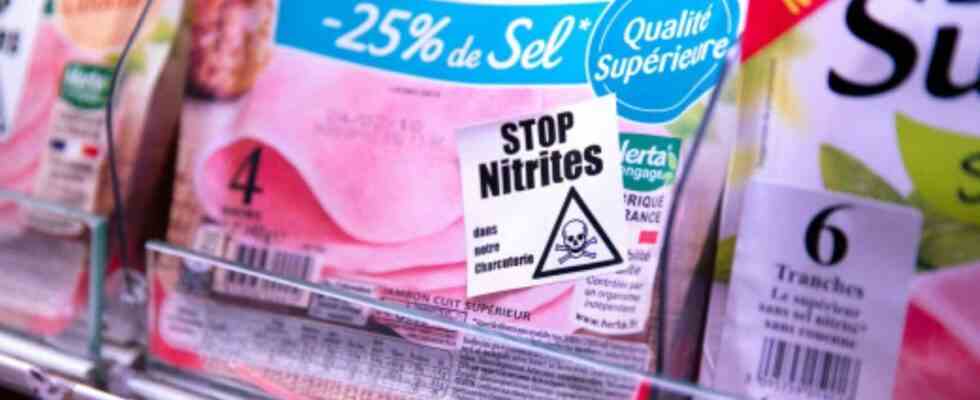The French health authorities confirm “the existence of an association between the risk of colorectal cancer and exposure to nitrates and nitrites”, in particular via processed meat, in an opinion published Tuesday after several months of work.
The National Food Safety Agency (Anses) affirms that the analysis of data from scientific publications published on the subject “joins the classification of the International Agency for Research on Cancer (IARC)” of the World Health Organization (WHO). ).
Colorectal cancers
In 2015, the IARC of the World Health Organization (WHO) classified processed meat, including deli meats, as carcinogenic (category 1). It would promote, among other things, colorectal cancers which kill nearly 18,000 people a year in France. Ingested nitrites are considered probable carcinogens (category 2A). ANSES “recommends reducing the exposure of the population to nitrates and nitrites by proactive measures by limiting exposure through food”.
Historically, butchers have used nitrated components to extend the duration of preservation of products and preventing the development of pathogenic bacteria that cause botulism in particular, a serious neurological condition that has been largely forgotten due to health progress. These are also the components that give the naturally gray ham its pink color.
Hidden Nitrites and Nitrates
While major manufacturers, such as Herta or Fleury Michon, have already launched ranges of “nitrite-free” ham, the agency warns against substitute solutions based on “plant extracts” or vegetables”: “This does not constitute a real alternative insofar as (these substituents) naturally contain nitrates which, under the effect of bacteria, are converted into nitrites”.
“These so-called “no added nitrite” or “zero nitrite” products therefore contain hidden nitrates and nitrites,” the agency points out.
Change daily doses
ANSES also considers it important to better define the “acceptable daily intakes” (ADI) of nitrates and nitrites. Because she notes a paradox: the existence of a link between the consumption of processed meats and the risk of cancer, even though the maximum recommended doses (150 grams of charcuterie per week in France) are respected (by 99% of the population) .
Pending further research, the French agency advises limiting its consumption of charcuterie to 150 grams per week and calls for a diversified diet, with at least five portions of fruit and vegetables per day.

